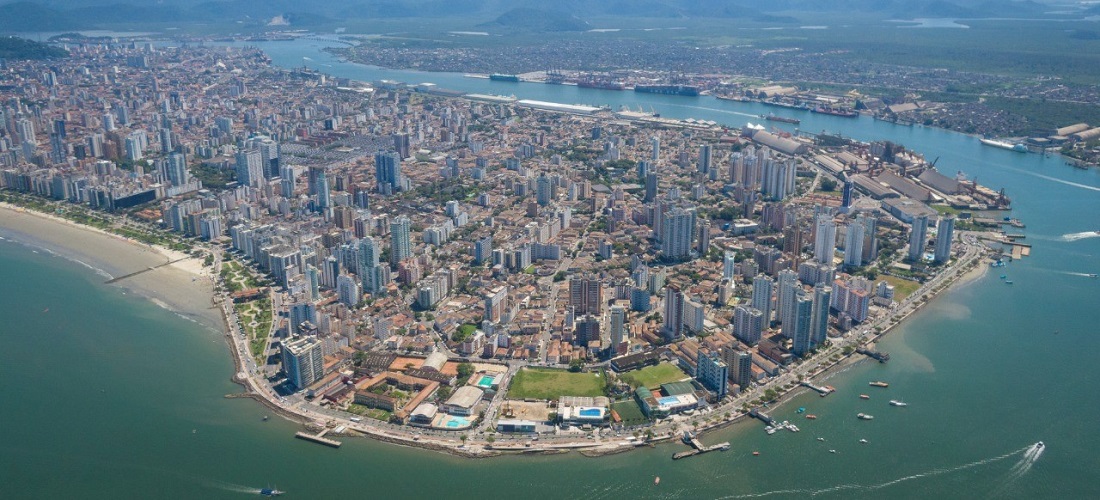
Port of Santos privatization left for 2023 per court audit request
Dec, 14, 2022 Posted by Gabriel MalheirosWeek 202250
Three ministers of the Federal Court of Audits TCU asked to reevaluate the process of privatization of the administration of the Port of Santos. The topic should be put back into the discussion in 45 days. Yet, the rapporteur, Minister Bruno Dantas, suggested giving preference to privatizing other smaller ports before the Santos.
Ministers Walton Alencar, Benjamin Zymler, and Vital do Rêgo stressed that there are points pending clarification. Among them is whether it is actually necessary to privatize the Santos Port Authority, which has been profitable recently. Other topics revolve around sound competition and the construction of a tunnel connecting the two banks of the maritime complex.
With expected investments in the order of BRL 20.3 billion, the privatization of the SPA was one of Bolsonaro’s administration’s primary goals. The current model suggests transferring the port authority control over to the private sector and concession of the port structures for 35 years.
Minister Bruno Dantas stressed that it recommendable to the Ministry of Infrastructure to “implement the privatization of other small-sized port authority whose relevant and complexity are comparatively smaller, with regular risk assessments and monitoring strategies to enhance the current regulatory model and gather experience before proceeding with the privatization of the Organized Port of Santos.”
Dantas argues that the verticalization of operations is a national-interest issue. The minister warns that there is a risk of prominent players abusing their dominant positions in the long run, making all other ports in the region struggle.
Thus, he ordered the Ministry of Infrastructure and the National Waterway Transportation Agency (Antaq) to include in the contract “a robust regulation to prevent the practice of vertical integration from turning into market concentration and abusive practices that harm free competition and national interests.”
He also argued that such regulation should take into account the possibility of banning companies under corporate control identified by the Administrative Council for Economic Defense (Cade) from submitting bids unless the auction fails to arouse the interests of other groups.
As for the construction of the tunnel between Santos and Guarujá, Dantas stressed that it would represent a development opportunity. He expressed his conviction that the current proposed model of having the future manager of the Port of Santos build and operate the tunnel is the best option.
“If we do two separate projects … once the construction of the tunnel starts, port activities will have to be interrupted and, evidently, a private player will not allow that to happen to give space to another private actor’s job,” highlighted the minister.
See below the track record of container exports from the Port of Santos compared to imports in the period between Jan 2019 and Oct 2022, according to the DataLiner market intelligence service.
Exports and imports – Port of Santos | Jan 2019 – Oct 2022 | TEU
Source: DataLiner (click here to request a demo)
Infrastructure
The Ministry of Infrastructure commented that “the ongoing projects follow normal procedures of structuring, analysis, or elaboration of public notices until further instructions by the government-elect transition team. For example, privatizing the Port of Santos is one of the projects being discussed.”
The governmental body also stressed that “the transition is running smoothly, transparently, and without damage to the technical works of the Ministry, which has always treated this process as a state policy and not a government policy.”
Procedure
The procedures leading up to the privatization of the Port of Santos began three years ago, with the expectation of having the call for bids published and the auction finalized still in 2022, which did not occur. The victory of Luiz Inácio Lula da Silva, who had already positioned himself against the project, and the various requests for changes made during the process made fulfilling the plan difficult.
According to information from the government transition team, the president-elect wants more time to evaluate the privatization model. His understanding is that it would be possible to seek other alternatives, such as authorizing private players to execute specific port services, such as conducting maintenance and depth-increasing dragging without privatizing the port’s administration.
Having time to analyze the effects of the first privatization of a public port authority in Brazil, i.e., the Codesa privatization, is another point of interest of the future Lula administration. The state company that managed the ports of Vitória and Barra do Riacho was bid this year for R$ 106 million by the investment fund Shelf 119 Multiestratégia from the manager Quadra Capital.
Source: A Tribuna
To read the full original article, please go to: https://www.atribuna.com.br/noticias/portomar/ministros-do-tcu-pedem-reavaliacao-e-desestatizacao-do-porto-de-santos-fica-para-2023
-
Automotive
Jun, 27, 2023
0
Imports of auto parts slow down in the year
-
Trade Regulations
Oct, 28, 2021
0
France bans landing of British seafood in its ports
-
Other Logistics
Jul, 02, 2020
0
Volume of cargo transported via rail up 5.7% in April/May period YoY
-
Other Cargo
Oct, 08, 2024
0
Strategic Rail and Port Developments Set to Transform Grain Exports from Mato Grosso



